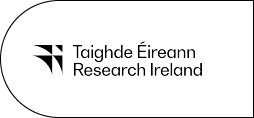Leveraging Rule-Based Machine Translation Knowledge for Under-Resourced Neural Machine Translation Models
Authors:
Daniel Torregrosa, Nivranshu Pasricha, Bharathi Raja, Maraim Masoud, Juan Alonso, Noe Casas, Mihael Arcan
Publication Type:
Refereed Conference Meeting Proceeding
Abstract:
Rule-based machine translation is a machine translation paradigm where linguistic knowledge is encoded by an expert in the form of rules that translate from source to target language. While this approach grants total control over the output of the system, the cost of formalising the needed linguistic knowledge is much higher than training a corpus-based system, where a machine learning approach is used to automatically learn to translate from examples. In this paper, we describe different approaches to leverage the information contained in rule-based machine translation systems to improve a corpus-based one, namely, a neural machine translation model, with a focus on a low-resource scenario. Our results suggest that adding morphological information to the source language is as effective as using subword units in this particular setting.
Digital Object Identifer (DOI):
10.NA
Publication Date:
23/08/2019
Research Group:
Unknown
Institution:
National University of Ireland, Galway (NUIG)
Project Acknowledges:
Open access repository:
No

